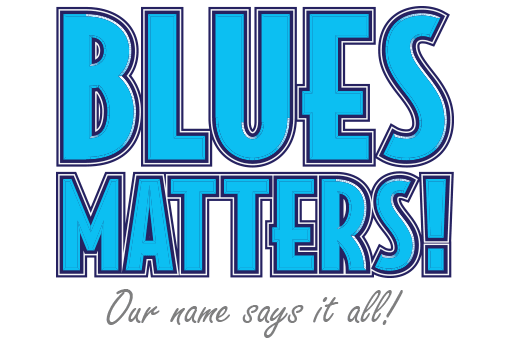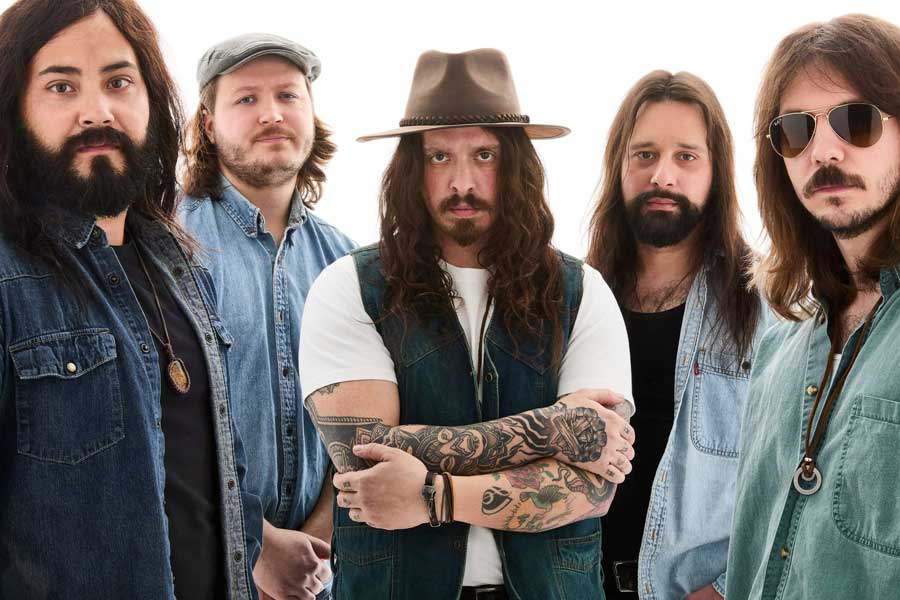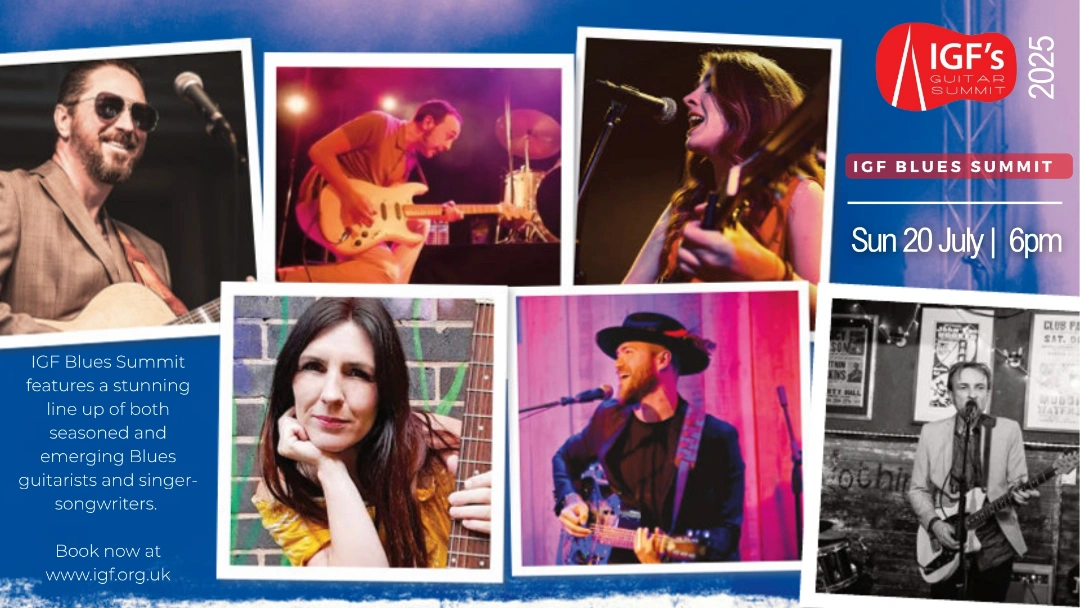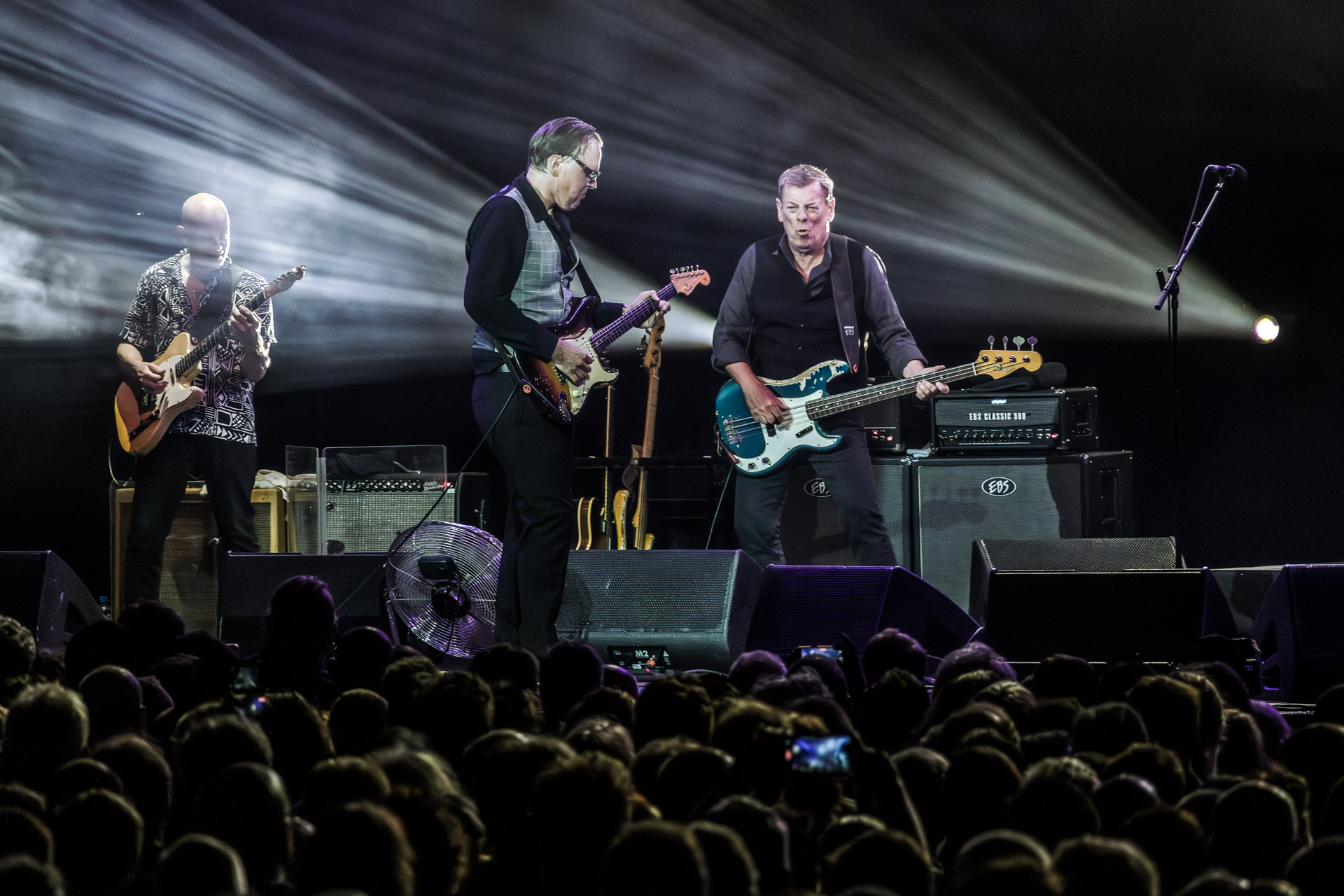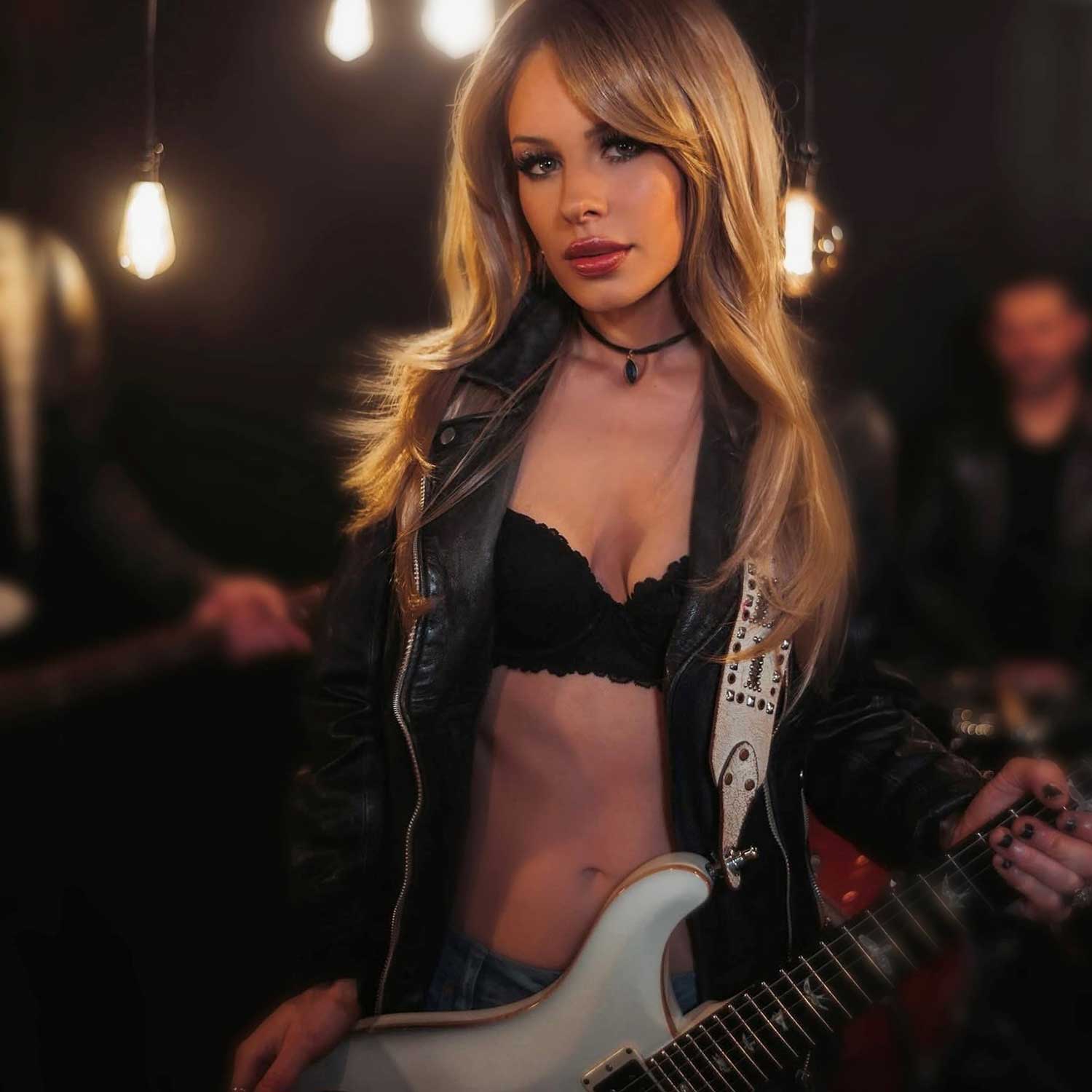Delbert McClinton is a musician who is really worthy of the accolade ‘legendary’. A true ‘cross-over’ artist Delbert has had chart albums on both the US Country & Blues charts and singles on the US national charts. His performing and recording career stretch back over 50 years and includes playing harmonica on Bruce Chanel’s 1962 international hit ‘Hey Baby’. This interview introduced and conducted by Jamie Hailstone reveals someone who has done almost everything but still enjoys every minute. Still getting respect!
Delbert McClinton by his own admission will go down in history as the man who taught John Lennon to play harmonica. That is just one highlight in an extraordinary career that has seen the Texan do it all; backing Blues artists like Sonny Boy Williamson, Freddie King, and Junior Parker, winning a Grammy for a duet with Bonnie Raitt and writing a song that was later covered by the Blues Brothers. If that wasn’t enough, he also played harmonica on the 1962 hit ‘Hey Baby’ by Bruce Channel. He shows no sign of slowing down and after more than 40 years in the music business, he recently released a new album ‘ACQUIRED TASTE’ that sees him reunited with producer Don Was (Bonnie Raitt, Rolling Stones). It is a faultless set of honky-tonk ballads, Blues and soul songs. After all these years, Delbert is still going strong – a true Blues & Country legend!
BM: I know you’ve been asked this question a million times, but could we start with the night you met John Lennon?
Well, that story has become so incredibly romanticised. I’ve even heard that I played harp on ‘Love Me Do’. The fact of it was I was over in England in 1962 with Bruce Channel when ‘Hey Baby’ was a big song; and the Beatles were the opening act for at least one show with us. They came out to about three or four shows that we did. You have to put it in context. They hadn’t changed the world yet. We were all on common ground. We were over for about six weeks and for the first three weeks we were doing the theatres with a whole roster. The show would start rocking at one or two in the afternoon and go until late at night. Every night, somebody in one of the bands would be backstage, asking me about the harmonica. When we did the show with the Beatles, it was the same thing. Anyway, John mentioned somewhere he was influenced by the harmonica playing on ‘Hey Baby’ and from there it got chiselled in stone that I taught him everything he knew. It was a fun time. We did hang out over a period of a few days, but nobody wants to hear that, they want to hear the romanticised story. I try not to mention the story any more, because that’s probably what they will put on my gravestone! It was one of the best times in my life, because I’d never been out of Texas before. Well, I went to New Mexico once (laughs).
On your new CD “Acquired Taste” you have worked again with the noted producer Don Was. How was that?
It was great. Don I and have worked a couple of times before. The first time was with Bonnie Raitt when we did ‘Good Man, Good Woman’. We worked on another record. Was it “Never Been Rocked Enough”? I hadn’t worked with him since and it had been 16 years. The guy who runs New West Records, Cameron Strang, is a friend of Don’s and he asked if he would do a record with me, and he said he’d love to. He came down here to Nashville. From the time that we agreed to do this, to the time we did it, I had finished off five songs. When we came into the studio, we were prepared. I think we made a good record.
Do you still enjoy going into the studio?
When you’re making music, you get an instant ‘thumbs up’ or an instant ‘thumbs down’; it’s a fun thing to do. Writing songs is a whole different world for me. The studio is a whole different world for me. Playing live is a whole different world for me. I have these three places where I live and it’s still exciting.
You grew up in Lubbock and Fort Worth and used to play in a band called the Straightjackets opening for people like Jimmy Reed, Freddie King and Sonny Boy Williamson…
I worked with Jimmy Reed and Freddie King a lot, and Sonny Boy, Buster Brown, Junior Parker. I grew up in a very exotic mix of Blues, country and Conjunto music [1] from Mexico, which is very provident in south Texas. It was a great time to be into music.
Did those guys treat you young musicians well and did they pass on some of their knowledge and wisdom?
They were great, but you have to put it in perspective. Those guys were not respected by the general public. Those guys could not stay in the same hotels that white folks stayed in. It was a different time. Even though they were making great strides in breaking through in music, they were still relegated to a class of music, which got very little respect in the long run. As far as getting in the public eye, it was tough.
It seems incredible in this day and age that there was so much segregation…
Oh, I know. It’s just bizarre. That’s the way the world was then. It was a different time and people were stupid (laughs), or more stupid than they are now.
You hear songs about honky-tonks by Hank Williams and Billy Joe Shaver. They sounded quite romantic in a way…
In Texas, you had to be able to play every type of music, because that’s what people wanted to hear. Rock and roll was still kind of a bad word. You had to be able to do country music, Nat King Cole songs, and cover a lot of ground in order to get work. The bands back then were playing eight nights a week just to make a living. You didn’t get much radio play, so your main gig was playing live. They weren’t any huge arenas available. Nobody was super-famous, although they should have been! All those great Blues guys, who died out by the mid sixties, never got their dues as far as I’m concerned. Willie Dixon wrote some of the best songs, ever. The people who are aware of Willie Dixon know that.
You started recording back in the sixties, when producers needed everything done in one take. How do you find working in modern studios with all the latest technology?
It’s very convenient, but technology has made it easy to take all the human aspects of recording out and make it perfect. I like to hear human-made music. I like to hear a near fatal crash and then a recovery. I think everyone likes to hear that. One of my favourite CDs is “The Tiffany Transcriptions”, when Bob Wills and his band back in 1946 recorded for two or three days straight. There are parts where people would forget the words and laugh. It makes you feel closer to them. I think that is a beautiful thing about human beings. We’re not perfect and trying to come as perfect is a situation that is untrue.
In the mid seventies you recorded two albums with Glen Clark as Delbert & Glen. Neither of the two records sold particularly well, but they proved to be popular with other singers, like Bonnie Raitt. What do you remember about that time?
When that was all happening, I was 30 years old. I was already too old to be rock and roller! We didn’t get the radio airplay. I think we were still doing music that was not suitable for the mainstream. It was the best time of my life, because when you are hungry, those are the good times. When you’re hungry, you can do anything. When you’re not hungry, then you get lackadaisical! I’ve been hungry for a long time and it feels good. They were some of the best times of my life when I was out in California, sleeping on a dirt floor in Topanga Canyon. We were living from hand to mouth, but we had everything we needed to go forward.
When Jake and Elwood Blues (aka Dan Ackroyd and the late John Belushi) and the Blues Brothers Band took to the stage at the Universal Amphitheatre in Los Angeles in September 1978, nobody could have predicted what would happen next. The live recording of that show went on to become one of the biggest selling Blues albums in the history of music. ‘BRIEFCASE FULL OF BLUES’ by the Blues Brothers went straight to the top of the charts and sold a staggering 3.5m copies
John Landis the director, was in the audience for the show, and said that the reaction the band got that night was ‘spectacular’. “No one, certainly not us, expected the first record to be that big,” says the director of the Blues Brothers movie, John Landis. He adds that “Danny was positively evangelical about Rhythm and Blues; the whole ‘mission from God’ thing in the script was me making fun of Danny. But his enthusiasm and passion did refocus attention on this great music and on the wonderful artists who performed it.” The idea of a fast-playing Rhythm and Blues outfit storming the charts seems impossible these days, but Landis points out, that it was pretty remarkable back then, in the late 1970s, as well. Landis recalls “In 1978 and 79 when we shot the movie, Abba and the Bee Gees were the big acts and disco was king; of the amazing guest stars in the movie, only Ray Charles was working steady at that time.” “Everyone thought we were wacky using this ‘old’ music; to give you an idea of how wacky, Universal did not want the soundtrack album and Atlantic Records who released it, would not put John Lee Hooker on it!” The movie had guest appearances from BB King, Ray Charles and a host of other Blues legends and has become a bona fide cult movie, but as Landis notes, the act was criticized by some performers back when they started- “The Blues Brothers have always gotten a lot of criticism from people with a stick up their ass.” “Jake and Elwood certainly were white men singing black music, but it might be noted how many of those songs were written by Steve Cropper! John and Danny were having fun, but their interest in the music is hard to question when you take a look at the band they put together to back them.” The band included Steve Cropper, ‘Duck’ Dunn, and Matt ‘Guitar’ Murphy. Paul Shaffer really did assemble a crack team. “Some acts were jealous of Jake and Elwood’s stardom, but I can tell you that James Brown, Aretha Franklin, Ray Charles, Cab Calloway, and John Lee Hooker were very happy to be there,” adds John Landis. The legend of Jake and Elwood Blues lives to this day. The records continue to sell and there are countless tribute acts around the world. For millions of people, the Blues Brothers were and still are the Blues!
The Blues Brothers on their album “Briefcase Full Of Blues” later covered one of those Delbert & Glen tracks, ‘B-Movie Boxcar Blues’. Do you know how they chose that song?
We became friends with those guys before they started the Blues Brothers. John Belushi got us on Saturday Night Live, because every time we played New York at the Lone Star Café, those guys would come out and get on stage with us. One day, John called me and said they were going to make a Blues Brothers record and he wanted to use me and my band as the back-up band, but shortly after that it all changed and it was going to be Paul Shaffer and another band. Anyway, John called me and said he wanted to hear all the records I had done. We had a date coming up in New York, and when I got there he was standing in the lobby of the Plaza Hotel. I gave him four or five records, and from that he picked ‘B Movie’.
What did you think of the Blues Brothers version of it?
Well, first of all, I think those guys did a great thing for Blues music. They brought attention to it. The arrangement they did on that song, I thought was really good. But it was my song! I guess since it was my song, I had more of a critical view of it than anybody else. It was good, but I didn’t think it was great. I was glad they did it and it brought a lot of attention, not only to my music, but also to a lot of guys who didn’t have a career anymore. They brought them back into the public eye.
You had a pop hit in 1980 when your version of Jerry Williams’ ‘Giving It Up For Your Love’ was released as a single…
Jerry Williams was a good friend of mine. I was over at a friend’s house one day and they said Jerry had a new record out. He played it for me and when it came to ‘Giving It Up For Your Love’, it just stuck out like a sore thumb. I couldn’t miss it. Then I forgot about it. Then I was at another friend’s house and he asked me the same thing. I made a note that I wanted to record this song. My life was in such turmoil at that time. I was going through a divorce. I was working eight nights a week and barely making a living. It did a lot for me in getting my name out there, but it didn’t really make that much of a difference.
You’ve played Austin City Limits on several occasions. How important has that show been to your career?
It’s been very important. It’s the best live TV show I’ve ever done. Here in Nashville, you do a live TV show and they are more concerned with getting the lighting right. I remember once, we were running through a song and we were really into it. A guy with a clipboard walks up and says “hold it, hold it! You need to stand over here”. He just blew the whole groove for everything. On Austin City Limits they turn it over to the artist. It’s a very comfortable and popular show.
You are also behind the hugely successful Sandy Beaches cruises. How did all that start?
I did a cruise with some other guys for two years, before I started mine. It was all Blues music. Now, I love Blues music, but mediocre Blues music will drive you out of your mind. As you know, I’m sure! I was stuck on a ship with what I considered to be pretty uninspired music. The players were trying to be inspired. When you play the Blues, you have to put something new into it. That’s a difficult thing to do. I told a friend of mine that I could have done a better job than this. Now, it has become a great homecoming for a lot of people. It’s a week in the Caribbean with the music going non-stop. It’s a lot of fun. It’s something I would like to keep going. We’ve had people meet their best friends, get married and live their whole lives around that cruise.
What bands or singers really excite you at the moment?
Not a whole lot. I wish there was more music that excites me. I don’t know if I’ve become more jaded. I’m sure you have to wade through a lot of stuff, which is just awful. I know a lot of people who don’t need bells, whistles or smoke machines. They don’t have to be a teenage girl with a ring in your bellybutton. They get up there, plug in and blow you away with good music. These are people without radio careers. They are mostly known in a specific area. It usually consists of a two or three state area. It’s been fun for me to bring people on the cruise that nobody has heard of. This cruise has boasted a lot of my friend’s careers.
Sadly, the musician Stephen Bruton, who you worked with on several occasions, passed away earlier this year. What do you remember about him?
Stephen Bruton was one of those guys that if he walked into a room, the whole place lit up. He was a very charismatic guy and was always there for anybody. He saved me a thousand times by coming out and playing with me. For most of my career, I have not been able to pay for good players. Keeping guys on the road is very difficult, especially when they are not making money. I didn’t make any money until I was 53 years old. Back in the late seventies, I had a pick-up truck with a camper top on it. The mattress I was born on was in the back, where three guys in the band could lay down. Nobody was making any money. When you can’t pay the guys, you are not in a position to get the better players, so you have to work with knuckleheads!
You’ve had quite a colourful life. Do feel quite lucky to be alive?
Oh I do. I went through the same s**t that everyone else did and survived. I know a hell of a lot of people who didn’t. I’ve always a little voice inside my mind, which somehow kept me from going too far. I’ve had a lot of good times. I’ve had a very exciting career. JH
[1] Conjunto music is a Mexican music form strongly based in tradition with folk elements; It is very dynamic and features dance rhythms such as polkas, chotizes, valses, boleros, rancheras, huapangos, etc, it is regularly played and enjoyed in fiestas, barrios and cantinas through out the land and is very influential on the so called ‘Tex-Mex’ sound

